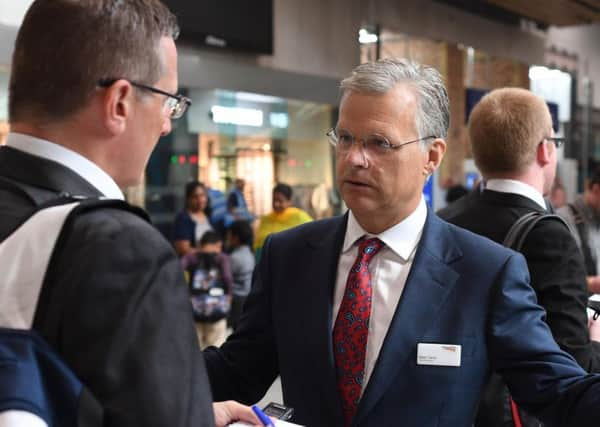David Behrens: If earnings are the name of the game, then you can call me Dave


I’ve always considered that David was quite a well-rounded signature – one which bestowed on me a dignity I didn’t deserve. But I could, I learned this week, be earning an extra 10 grand a year by lowering myself to the earthier derivative of Dave.
It was a report from a job searching website called Adzuna that drew my attention to the relative value of different first names. Davids, on average, earn £41,617, according to their curricula vitae. Daves, on the other hand, are among the top one per cent of earners.
Advertisement
Hide AdAdvertisement
Hide AdSuch anomalies are not new. It used to be said that anyone called Stephen could measure his position in life according to how likely his colleagues were to call him Steve. He would start by being patronised as “young Stephen” the apprentice, but graduate to Steve when he became one of the lads. In management he would revert to Stephen because he needed to develop respect, but once in the boardroom he would lapse back into Steve so as not to seem aloof.
People called Mark, the website tells us, earn an average of £42,441 a year – but the operative word here is “average” because those in the burgeoning quango sector are anything but.
According to another report this week, 238 people at the helm of these semi-official-but-not-quite-governmental bodies sit alongside Dave in the top one per cent of earners. And – guess what? – the ones who earn most are those running the least efficient operations.
One Mark in particular, Mark Carne, chief executive of the failing infrastructure maintainer Network Rail, was paid just a smidgen less than £750,000 in 2016. For the record, that’s 1,300 per cent more than people called Dave.
Advertisement
Hide AdAdvertisement
Hide AdSome 52 other officers of Network Rail also appear in the list of these so-called quangocrats, including, and I’m not making this up, the organisation’s “Head of Reward”, who gets £180,000. High Speed Two, the body behind the as-yet non-existent HS2 rail line, boasts 37 employees in the same list.
What all of these not-quite-governmental people have in common is that they are drawing more from the public purse than the Prime Minister, who is supposed to be the head of the Government.
Because there is far less scrutiny of these arms-length organisations than of bona fide Whitehall departments, it is hard to apply a scientific assessment of whether these jobs are worth salaries so clearly unrepresentative of the jobs market. So instead, let’s use the imprecise yardstick of asking when you last heard anyone remark that Network Rail was doing a really splendid job. No? Nor me.
The quangocracy’s justification for paying as much as it does is that it needs to attract the best people, and if it did indeed have the best people it might have a point. But – and let’s apply another unscientific measure here – how many of us think these public bodies are lean and well run? Thought not.
Advertisement
Hide AdAdvertisement
Hide AdMr Carne is on his way out of Network Rail. He will retire in the summer, though he is only 58, following reports that the Government had grown tired of the missed punctuality targets, delays to track upgrades and the mounting pile of debt he oversaw. In that sense, he is a fall guy for the whole industry, for the state of the rail network reflects badly on everyone who works within it.
Back to the list of forenames, and one of the most startling, though perhaps not surprising, aspects is the disparity between genders. The top-earning male name, Ed, is valued at £61,000 but Liz, which heads the female list, is put at only £38,000. These are not just BBC figures, mind – this is everywhere.
I tried a few others: people called Theresa earn an average of £26,637, which is a figure the May family might want to budget for after the next election. The name Boris, on the other hand, commands £40,743 – somewhat less than the still not-quite-prime ministerial £46,447 a Jeremy can expect to make.
I don’t know what to conclude from this, except that I don’t know anyone called Ed who looks like he earns £61,000. But I do know that I will be in a higher tax bracket next year – and my name’s not Dave.